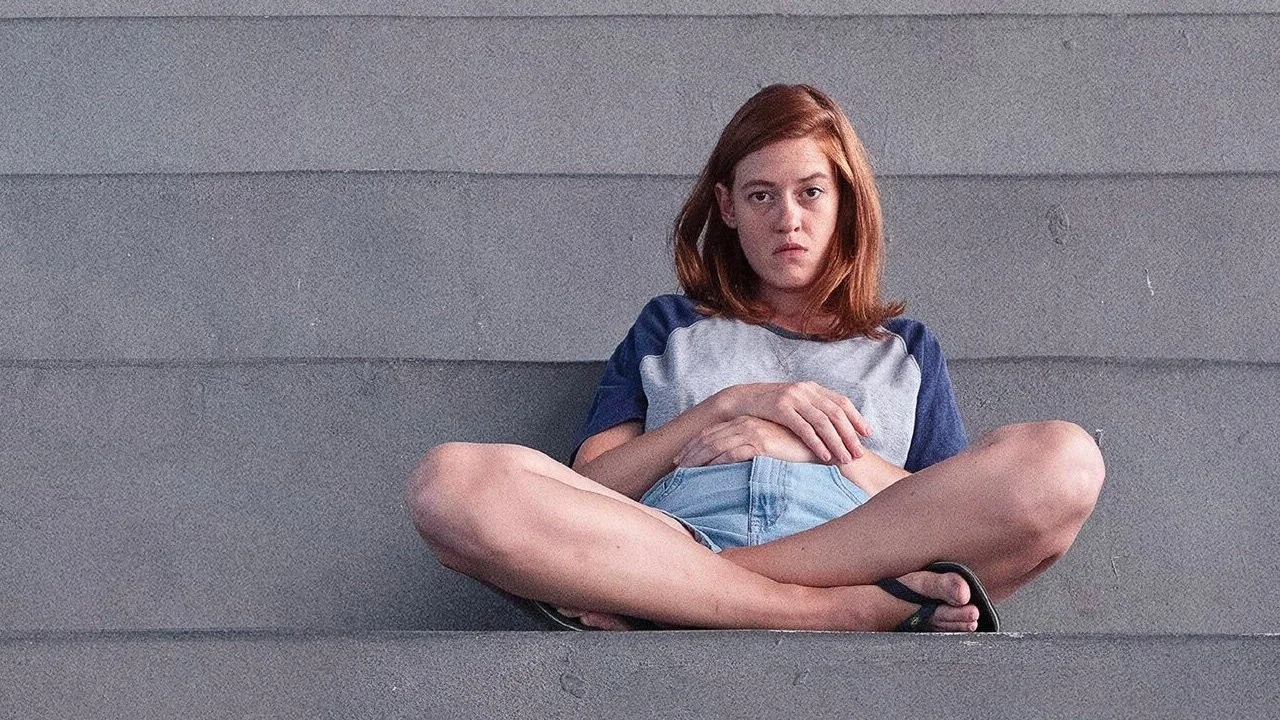Moon, 66 Questions
Jacqueline Lentzou’s Greek drama, her first feature, showcases an outstanding presence in the form of Sofia Kokkali.
For better or for worse, Moon, 66 Questions is a film that is markedly individual. It is a first feature from Greece by Jacqueline Lentzou whose earlier short films won acclaim at festivals. As writer and director of Moon, 66 Questions her adventurous approach is certainly personal but at the same time it fits neatly enough into what has been dubbed ‘The Greek Weird Wave’ which, emerging around 2009, has at its centre the offbeat works of Yorgos Lanthimos and Athina Rachel Tsangari.
What Lentzou gives us is a film built around what one comes to see as two contrasted elements. Central to it is the relationship between Paris (Lazaros Georgakopoulos), a man in his fifties, and his daughter, Artemis (Sofia Kokkali), who is in her late teens. Paris has been struck down by Multiple Sclerosis and, separated from his wife and with relatives too preoccupied with their own lives to help, he is being looked after by Artemis. It is from her viewpoint that the story is told. Kokkali, a wonderful presence and an actress who has worked with Lentzou before, is made the central focus often observed in close-up shots and featured too when video footage reflecting her memories is accompanied by words that suggest diary entries made by her.
In some respects, Moon, 66 Questions puts one in mind of last year's brilliant study of dementia, The Father, since both works feature a parent seriously afflicted and a daughter concerned about him. The oddities present in that film’s narrative stemmed from the hallucinations in the father's mind which the viewer was made to share. But here, with everything reflecting how Artemis sees things, the stylised presentation has no comparable source. Indeed, it seems to be down to the preoccupations of the director herself. However, we do see Artemis as a dutiful daughter, albeit one who has never achieved a satisfactory relationship with Paris who has always seemed a cold and distant father. The film also brings out the extent to which her duties as a carer are robbing her of the standard pleasures of a teenager’s life. That much is clear and there is great conviction too in the way that Georgakopoulos portrays a man in the grip of Multiple Sclerosis. But the film has another side to it which, however intriguing, fails to satisfy.
At the outset we are told by Lentzou that this is a film about love, movement, flow and the lack of them, but that hardly explains either the use of tarot cards to divide the narrative into sections or the inclusion of visual references to astronomy (I believe that even the title, obscure to me, has a link with tarot). The exact year in which the main narrative is unfolding is not clear either (for no obvious reason the film opens with video footage labelled as being shot in 1997, 1999, 1997 and 1996 in that order). Furthermore, despite the wish to make us identify with Artemis, we don't share her knowledge so that, for example, the various family members come and go only vaguely identified.
Quite late on, a family secret is uncovered (the discovery being made by Artemis in a way that feels contrived) and this does shape the story since it leads ultimately to a closer understanding between father and daughter. Nevertheless, the limited detail over how this change comes about together with odd elements that occur at intervals throughout (be it Artemis acting out a past incident as both herself and her mother, her description of a dream in which Paris is half human and half fish or the family interviewing a carer who appears to be unable to speak Greek) combine to leave one dissatisfied. Camera angles and editing often surprise and to some extent intrigue, but the film’s originality often feels self-conscious. Nevertheless, adventurous filmgoers might well be drawn to Moon, 66 Questions and those who are will certainly be rewarded by the fine photography of Konstantinos Koukoulios and by the subtle yet compelling impact of Sofia Kokkali in the central role.
Original title: Selini, 66 erotiseis.
MANSEL STIMPSON
Cast: Lazaros Georgakopoulos, Sofia Kokkali. Nikitas Tsakiroglou, Nikolas Hanakoulas, Kaiti Imrochori, Elena Topalidou, Maria Zorba, Isavella Boulai.
Dir Jacqueline Lentzou, Pro Fenia Cossovitsa, Screenplay Jacqueline Lentzou, Ph Konststantinos Koukoulios, Pro Des Stavros Liokalos, Ed Smaro Papaevangelou, Music Delphine Malaussena, Costumes Eva Goulakou.
Blonde/CNC/Hellenic Radio & Television (ERT)/Luxbox/Greek Film Center-Modern Films.
108 mins. Greece/France. 2021. UK Rel: 24 June 2022. Cert. 12A.


